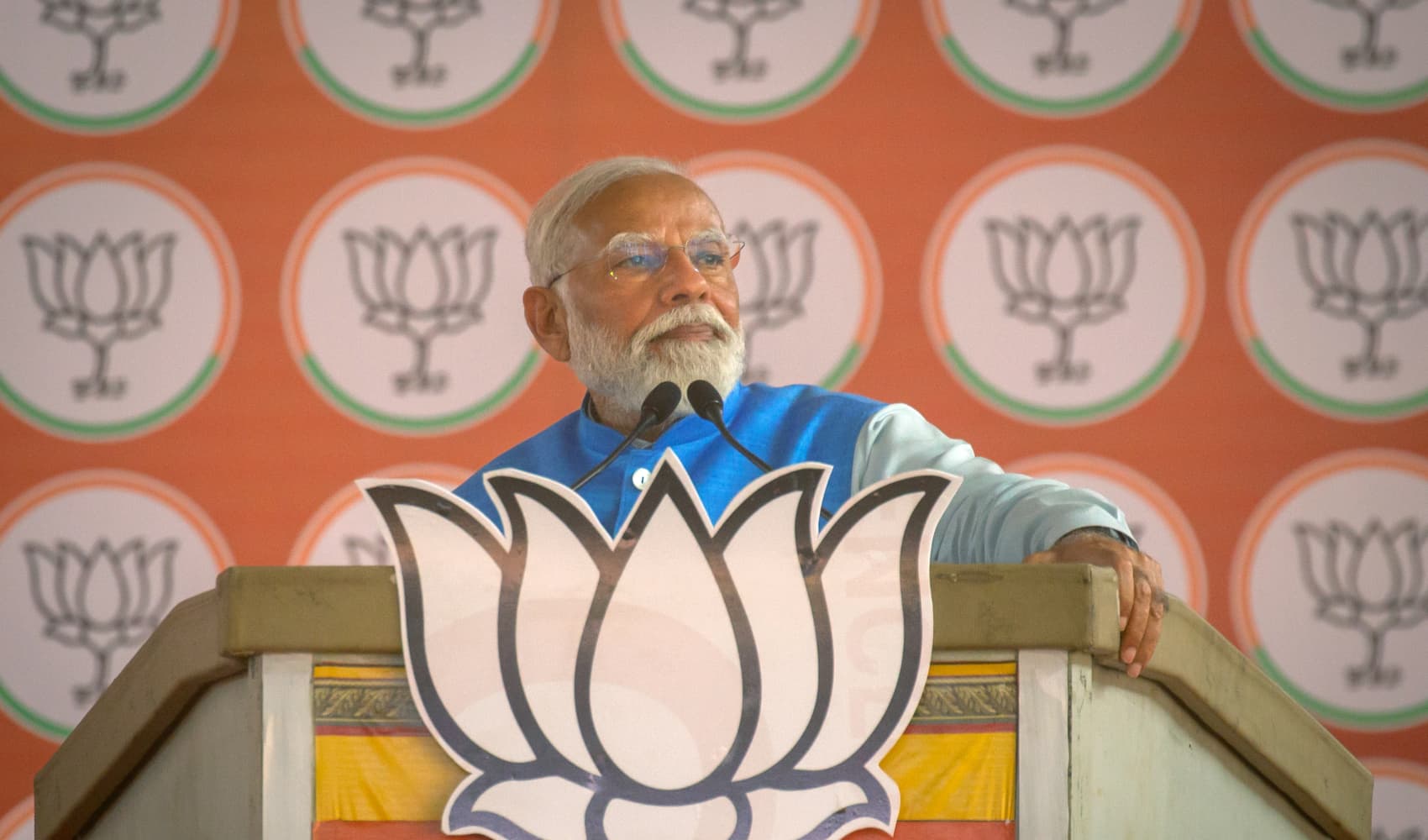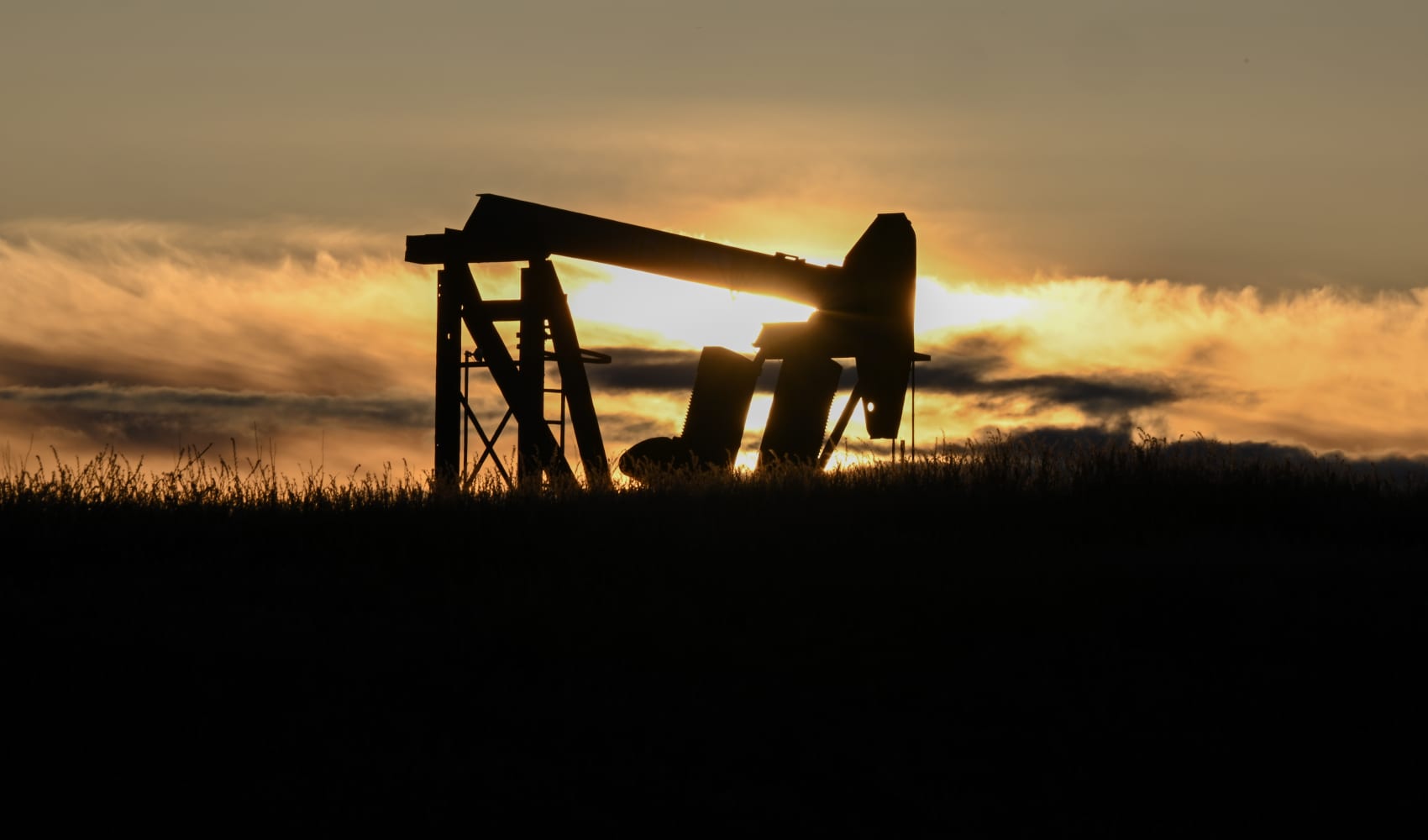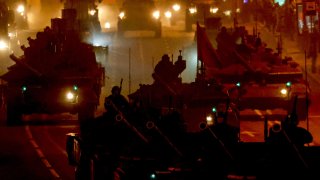
- Russian President Vladimir Putin could look to declare some kind of victory in — or an even bigger assault on — Ukraine on "Victory Day" on Monday.
- May 9 is "Victory Day" in Russia and it marks the anniversary of the then-Soviet Union's defeat of Nazi Germany in World War II.
- A number of geopolitical analysts believe Putin will use the occasion to make a major announcement relating to the Ukraine war.
As "Victory Day" gets underway in Russia, speculation is rife that President Vladimir Putin could on Monday declare some kind of victory in Ukraine — or even all-out war.
May 9 is one of the most significant days of the year for Russia and its national identity as it marks the anniversary of the then-Soviet Union's defeat of Nazi Germany at the end of World War II in 1945.
The day sees Moscow display its military might with pomp, pride and pageantry, with massive military parades through the center of the capital, watched on by Putin and other senior Kremlin officials.
Get a weekly recap of the latest San Francisco Bay Area housing news. Sign up for NBC Bay Area’s Housing Deconstructed newsletter.
This year the event will have added significance given that Russia is actively engaged in a military conflict with Ukraine, having invaded its neighbor on Feb.24.
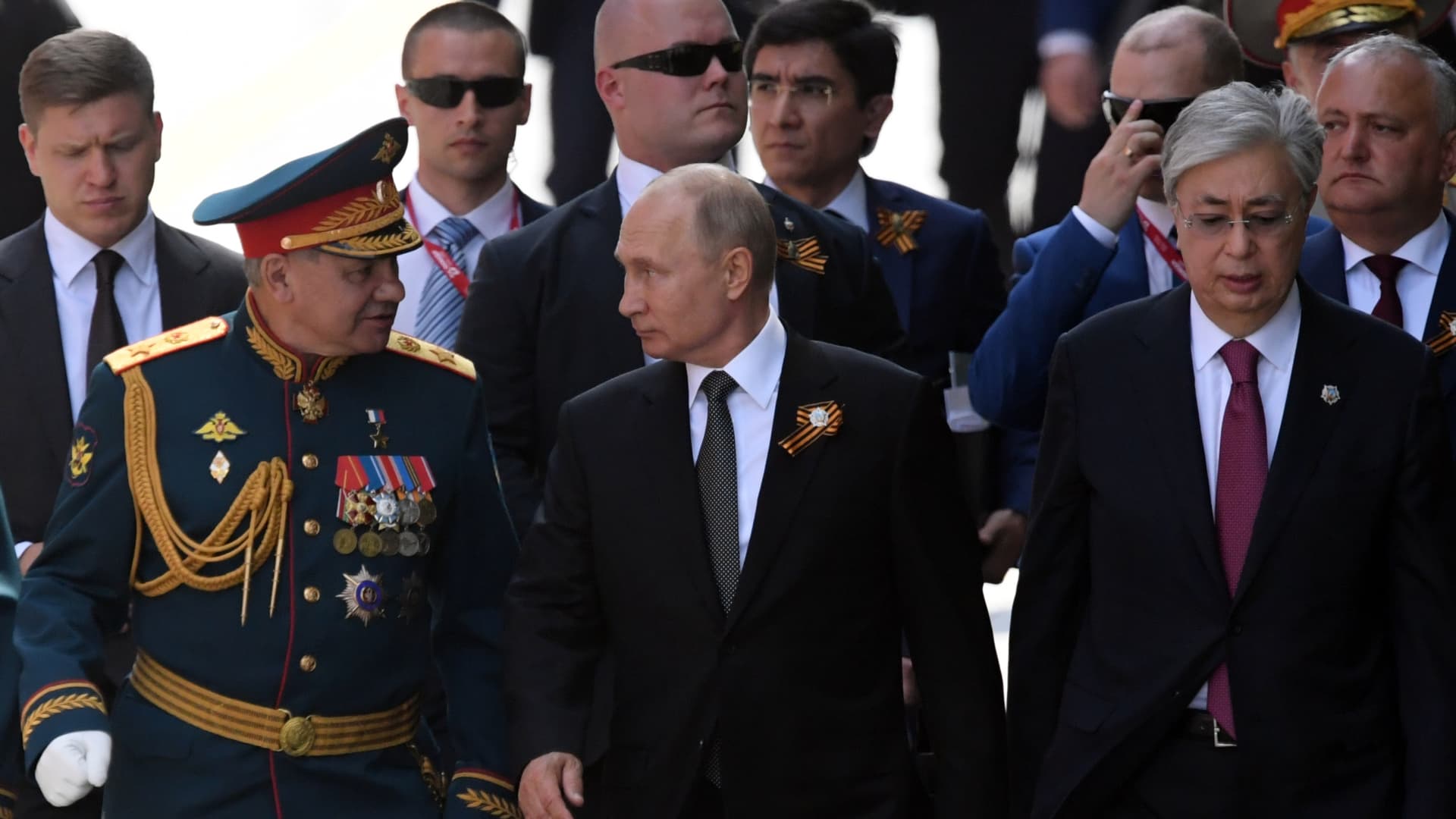
Mass mobilization, or victory?
Money Report
Western officials and geopolitical analysts, as well as Ukrainian intelligence, suggest that Putin could use this year's Victory Day to announce a win in Ukraine — specifically in the eastern Donbas region where its forces have concentrated their attacks in recent weeks.
There are also fears the date could see Russia double-down on the invasion, ordering the mass mobilization of its army and citizens on a wartime footing.
Russia has certainly scaled up its attacks on Ukraine in recent days and, having pulled back its forces from the north in recent weeks, has focused on seizing key strategic positions in southern and eastern Ukraine, especially in the Donbas region where it has backed separatist rebels for the last eight years.
Looking ahead to Victory Day, William Alberque, director of strategy, technology and arms control at the International Institute for Strategic Studies, said there are "two real big options" for Putin.
"One is he just declares victory with what he has and he says: 'Look, I expanded the DPR and LPR [the two pro-Russian "People's Republics" in Donetsk and Luhansk],' and says: 'I connected them to Crimea and the land bridge, and we secured the water supplies for Crimea and now I can declare that it's part of Russia'," Alberque said.
"Or, the alternative is that he declares actual war and a total war mobilization."
Given the unpredictable nature of Putin's leadership, Alberque said that "ultimately we have to prepare for the worst."
The mass mobilization of Russia's population for wartime operations would be a big step for Putin, however, potentially putting him at risk of popular dissent, particularly if thousands of new, young Russian conscripts are sent to fight in the war despite having little training.
In March, Putin signed a decree ordering 134,500 new conscripts into the army, raising eyebrows that they could destined to fight in Ukraine; Putin insisted they would not.
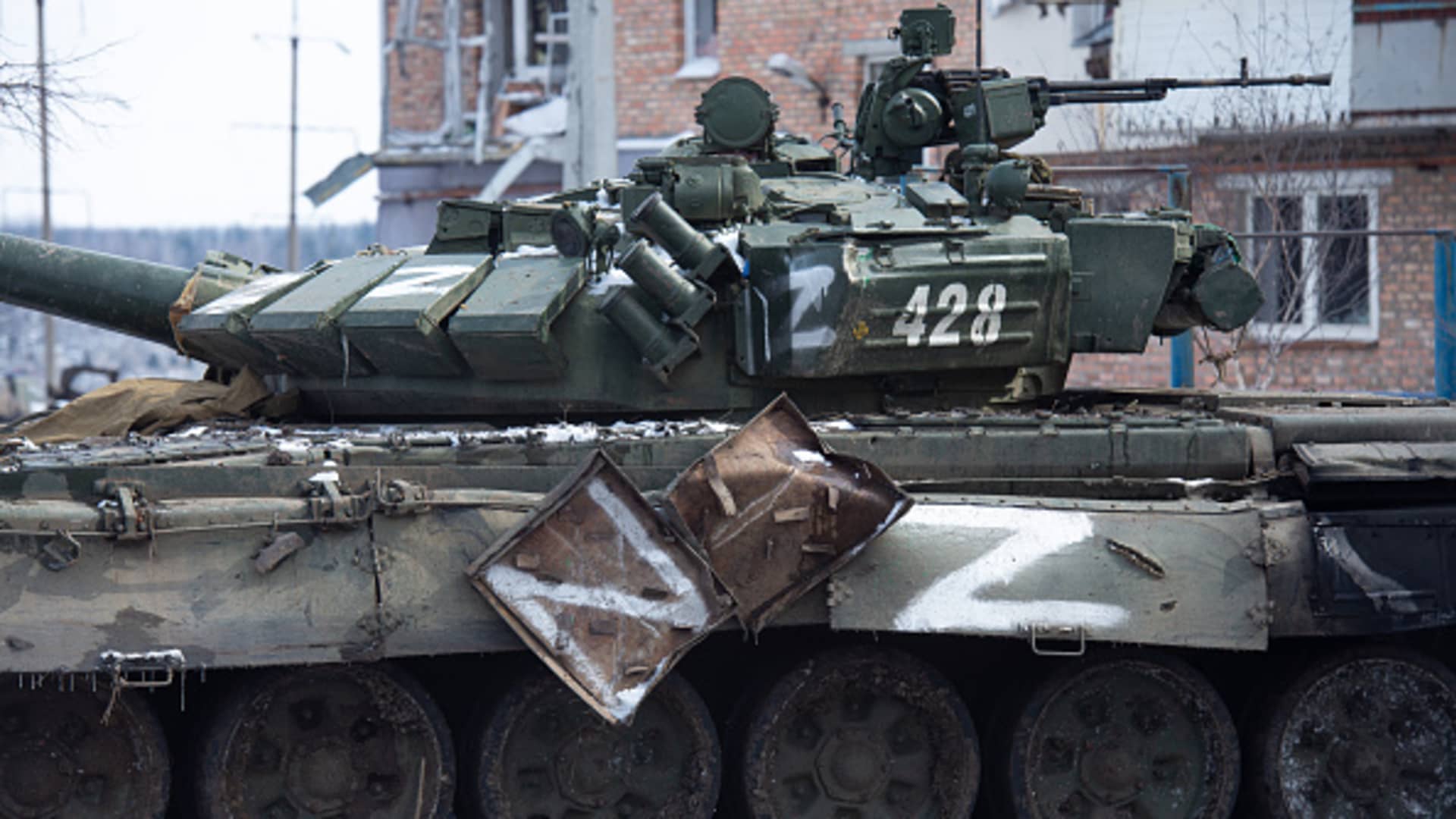
Russia has repeatedly denied that May 9 will herald the declaration of war on Ukraine and has shied away from the term "war" since its invasion began, instead calling it a "special military operation."
Putin's Press Secretary Dmitry Peskov this week rebuked journalists asking what the likelihood was of Putin declaring war on Ukraine, by telling them "no, this is nonsense."
Russia is 'preparing'
When asked whether Russia is planning to announce a full mobilization on May 9, Kyiv's Defense Intelligence Chief Kyrylo Budanov appeared certain.
"Yes, they are preparing," he said, adding that Rosreserv — Russia's state agency responsible for storing, securing and managing reserves of food and state-owned equipment in preparation for states of emergency — had "started to check what they actually have in stock and to calculate what they can give out on mobilization orders."
"This is an absolutely necessary step before the start of real mobilisation," he added.
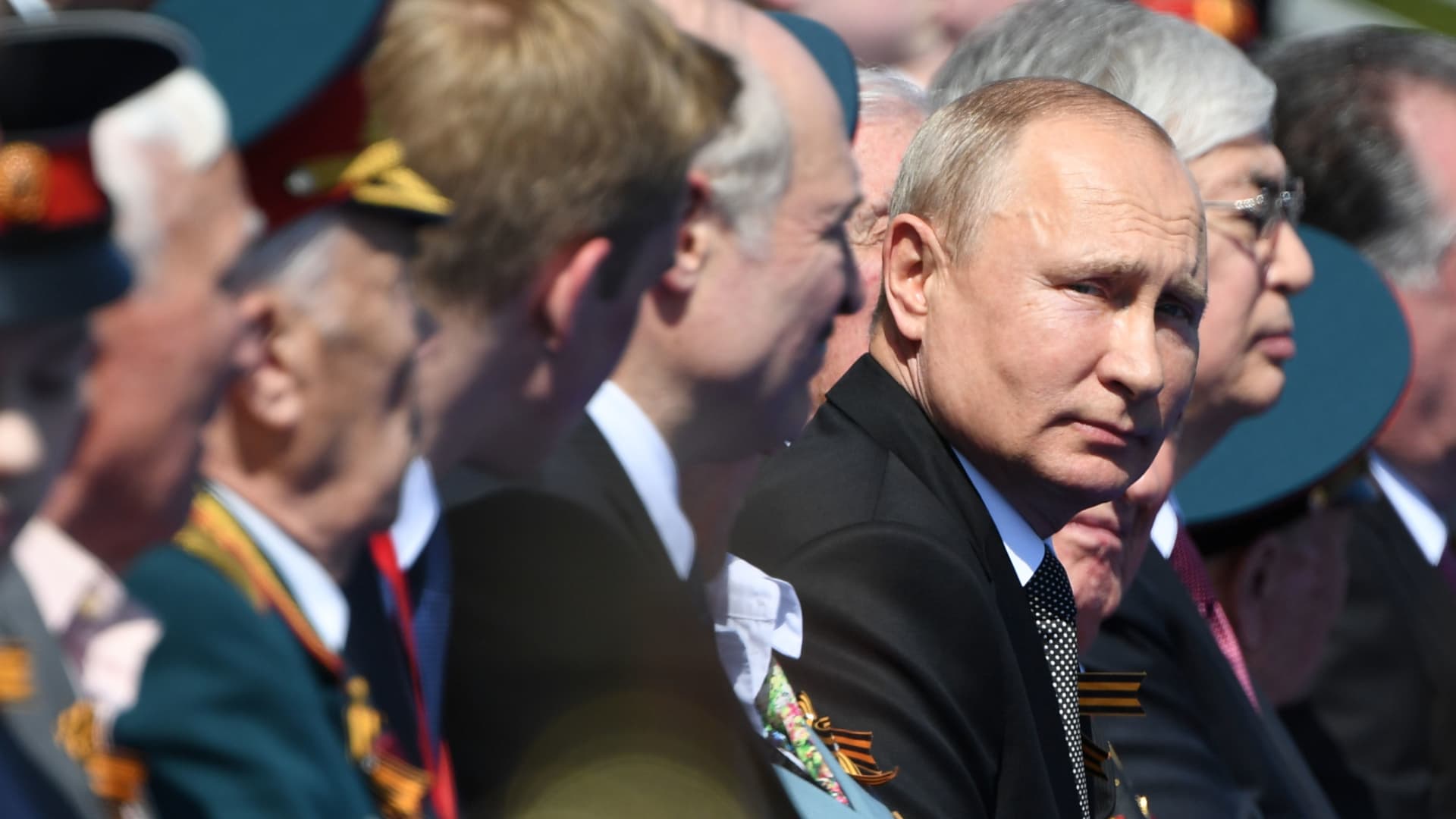
With 'Victory Day' focused on the Soviet victory over Nazi Germany, the occasion would be ripe for Putin to liken its invasion of Ukraine, and what it claims is its "protection" of ethnic Russians there, to Russia's defense of the country in World War II.
Britain's Defense Minister Ben Wallace said last week that he would not be surprised if Putin would use Victory Day to declare Russia was "now at war with the world's Nazis." The Kremlin has repeatedly made baseless claims that Ukraine's government is led by "Nazis" in a bid to justify its invasion to the Russian public, with experts saying there is no truth to the claim.
How far could Putin go?
There are concerns that any mass mobilization could be accompanied by the introduction of martial law in Russia, a move that would confer extraordinary powers on Putin, enabling a dramatic increase in his control over citizens' lives and Russia's economy.
Not only would it give him the power to close Russia's borders and censor communications, but he could introduce curfews, control food supplies, seize private property and mobilize the population for wartime operations even to the point of forced labor for defense needs.
Russia's constitution allows martial law to be introduced if the country is under attack from an external force and there are concerns Russia could prepare a "false flag" attack to justify all-out war, and martial law.

One of the big questions in this regards is how far Putin is willing to go to achieve his objectives in Ukraine.
Maximilian Hess, fellow at the Foreign Policy Research Institute, told CNBC that "it's very clear that he wants to be able to have something that he considers a sizable victory and soon."
Hess said the "complete eradication" of the Ukrainian army in Donetsk and Luhansk was Putin's primary airm, but, "I don't think that that's where he wants to stop."
"Whether there's a clear Russian overarching military strategy remains to be seen, but the tactic is certainly a brutal one," he added.
It's widely believed that Russia is focusing its attacks on the Donbas region in order to fully claim the territory and to enable it to create a land bridge from Russia to Crimea, which it annexed in 2014, on the southern Ukrainian coast. This would give it access to ports crucial to its economy, and to its military fleet there on the Black Sea.
The battered coastal city of Mariupol — home to some of the most intense fighting over recent weeks — appears to is a key part of this plan, as its capture would help Russia secure the link between Crimea and the Donbas.
The U.K. Ministry of Defence on Friday noted that Russian forces have continued their assault on the Azovstal steel plant in the city for a second day, despite Russian statements claiming they would only seek to seal it off.
"The renewed effort by Russia to secure Azovstal and complete the capture of Mariupol is likely linked to the upcoming 9 May Victory Day commemorations and Putin's desire to have a symbolic success in Ukraine," the ministry tweeted.
Whether the capture of Mariupol and control of the Donbas region would satisfy Russia, and whether Ukraine is prepared to concede any of its territory (it says it is not), points to an open-ended conflict that could drag on for years. Strategists have warned that the conflict in Ukraine could become a war of attrition, with massive losses on both sides and no clear "victor."


